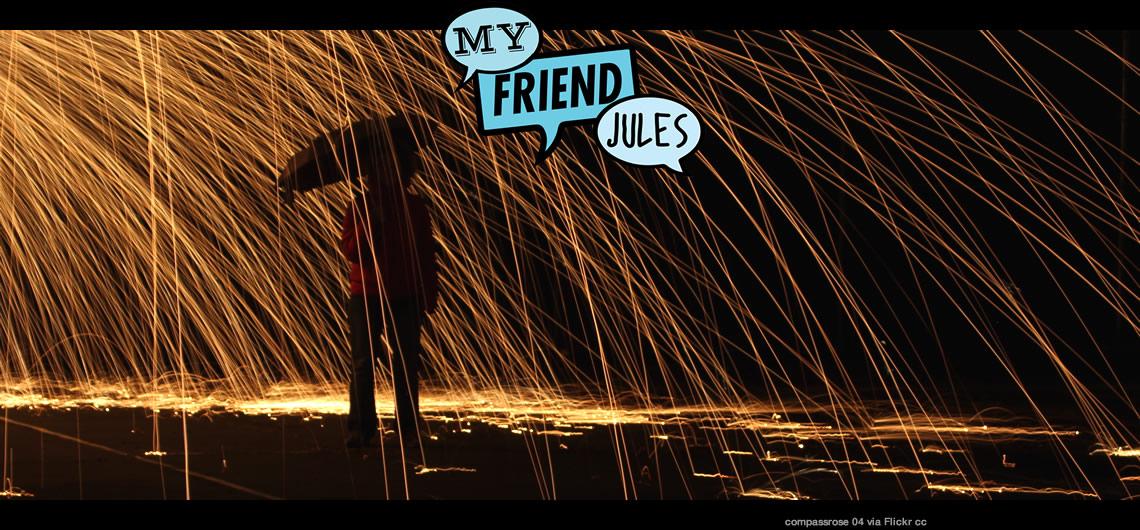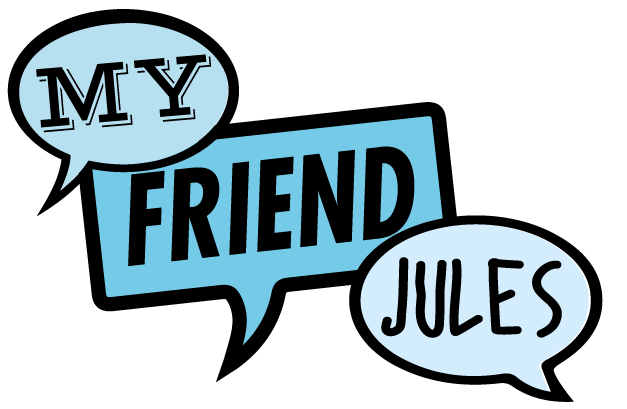At the beginning, there were sparks. Not the metaphorical start-of-relationship sparks, but real sparks, vivid blue and bright as camera-flashes. I was catching the Tube with Archie, taking him back to meet his Mum at Heathrow. He was excited: the excitement of a railway-obsessed four-year-old who had spent the weekend in London repeatedly asking whether we could 'go on the trains now'. Other kids would have been excited by the dinosaur-skeletons or the zoo-giraffes, but Archie was much more interested by turnstiles, escalators and maintenance-cupboards: the grubby innards of the commuter-transport network.
Now was our final time to take the train together. I'd bumped two rucksacks and a bulging Thomas-the-Tank-Engine suitcase down the station stairs. It was midday on a Monday, so the platform was thankfully uncrowded. I gave Archie the usual reminders about holding my hand, staying behind the yellow line, and sitting down as soon as we got on the train. He seemed nervous, restless, and not entirely happy, even when I let him swipe his own Oystercard through the gate.
We heard the train as it approached, and we peered down the tunnel. The wheels shrieked, and there were the usual sword-fight sounds of metal-on-metal as the train slowed. Down the tunnel, one of the rails suddenly sparked, sending out bright flashes, like tiny bolts of underground lightning.
"The train is splashing!" Archie said, "it's splashing!"
"What's splashing, Archie?"
"The splashing light! I don't like the splashing!"
"It's okay," I said, crouching down, "it's just sparks flashing from the wheels".
"But I don't like it! We should go on a different train."
"No, we need to get on this train, Archie, when the doors open".
He tried to hold himself back on the platform, but I maneuvered us clumsily through the doors, and we dropped onto seats in a graceless crash of rucksacks and suitcase.
"Why were they splashing?" he asked.
"I don't know Archie, the wheels just spark sometimes, it's nothing to worry about."
Archie was unconvinced, nervous in his seat, but I didn't have the energy to reassure him any more.
There was a man sitting opposite us. The ID on his lanyard said 'Tom Jules - Apprentice Electrical Engineer' and 'London Underground'. At his feet was a fluorescent-orange rucksack, with the straps held on with velcro. He smiled, and I gave an apologetic smile back.
"I'm scared of the splashing," Archie repeated, quietly. I could tell he was getting upset. Usually I would have given him my phone to distract him, but it was running low on battery. His anticipation of the train-journey had worn off, and my reassurances that "it's just what happens" weren't having any effect. He was getting quiet – the quietness of a child on the edge of tears.
"It's safe," said the man opposite, "the sparks won't hurt you".
I remember the way he spoke. And I remember the way his voice calmed Archie immediately. It was strong without being strict, authoritative without being patronising. I made eye-contact with the man, and then with Archie, sharing the unspoken reassurance that it was okay to speak, and to listen.
"There's electricity in the rails," the man explained, "and a part underneath the train works like a big wire, which joins up with the electricity. Sometimes the electricity has to do a little jump onto the train, and that's what makes the flashing light. It's not a dangerous thing".
I know now that that could have been the end of it. He might never have written down his number. Tom Jules and I could each have each spent the next month forlornly reading the 'rush-hour crush' section of the Metro in search of a message for "blue-eyed guy with knowledge of electricity" or "overtired woman with damp hair and a Thomas-the-Tank suitcase". It scares me to think that we might never have spoken, that all this might never have happened.
"Is it electricity like in a hairdryer?" Archie asked, suddenly.
The man looked across at me and I smiled.
"Yes," he said, "but it's more powerful. The domestic supply, in your house, that's two-forty volts, but this line's operating at..." he paused, realising he'd perhaps misjudged the level of detail required, "... at six-thirty volts - it's nearly three times as much as a hairdryer. But yes, it's all electricity."
"And in light-bulbs?" Archie asked.
I interrupted: "Is it okay if he asks you questions?"
The man smiled and nodded.
"Yes - it's all electricity - some of it gets to makes the light shine, some it makes the train go forward, and some of it makes the doors open."
"How does it make it the train go?"
The man asked me an unspoken question with a slight lift of his head.
"Holborn," I answered.
He pulled a sheet of graph-paper from his orange rucksack, and began to talk and draw. There were running-rails and power-rails, and a sketched train-engine, and some things I half-recognised as the symbols for batteries and bulbs. Archie was fascinated - not understanding everything, but hanging on every word of 'regenerative braking' and 'solenoids' and 'direct current'. I listened for twenty minutes, enjoying the calmness of the man's voice and the way he patiently followed the labyrinthine logic of Archie's thoughts. Other passengers listened too. Archie's questions were answered, and the paper grew busy with circuitry and motors - pluses and minuses, the arrangement of wheels on the track, and finally a scattering of lightning-sparks to show the power arcing between the train and the rail.
"This is us," I said, when a pre-recorded voice announced that customers "should change here for the Piccadilly Line".
Archie seemed reluctant to leave. He could have spent the whole day talking to his new friend about trains, and wheels and electricity.
"Come on," I said, "we need to go and meet your Mum from the plane".
The man reached forward and wrote something else on the paper, a phone number in a gap between a wire-end and a battery.
"Thank you," I mouthed, and he smiled back.
My Friend Jules explores new ways for us to think about energy and to share points of view about this vital common resource. It recognises that our energy decisions depend as much on human factors as science. By contributing your unique story about Jules, you help us more fully understand our society’s complex relationship to energy.
Report this content
If you feel this content is inappropriate or want to report a technical issue - do so here.


